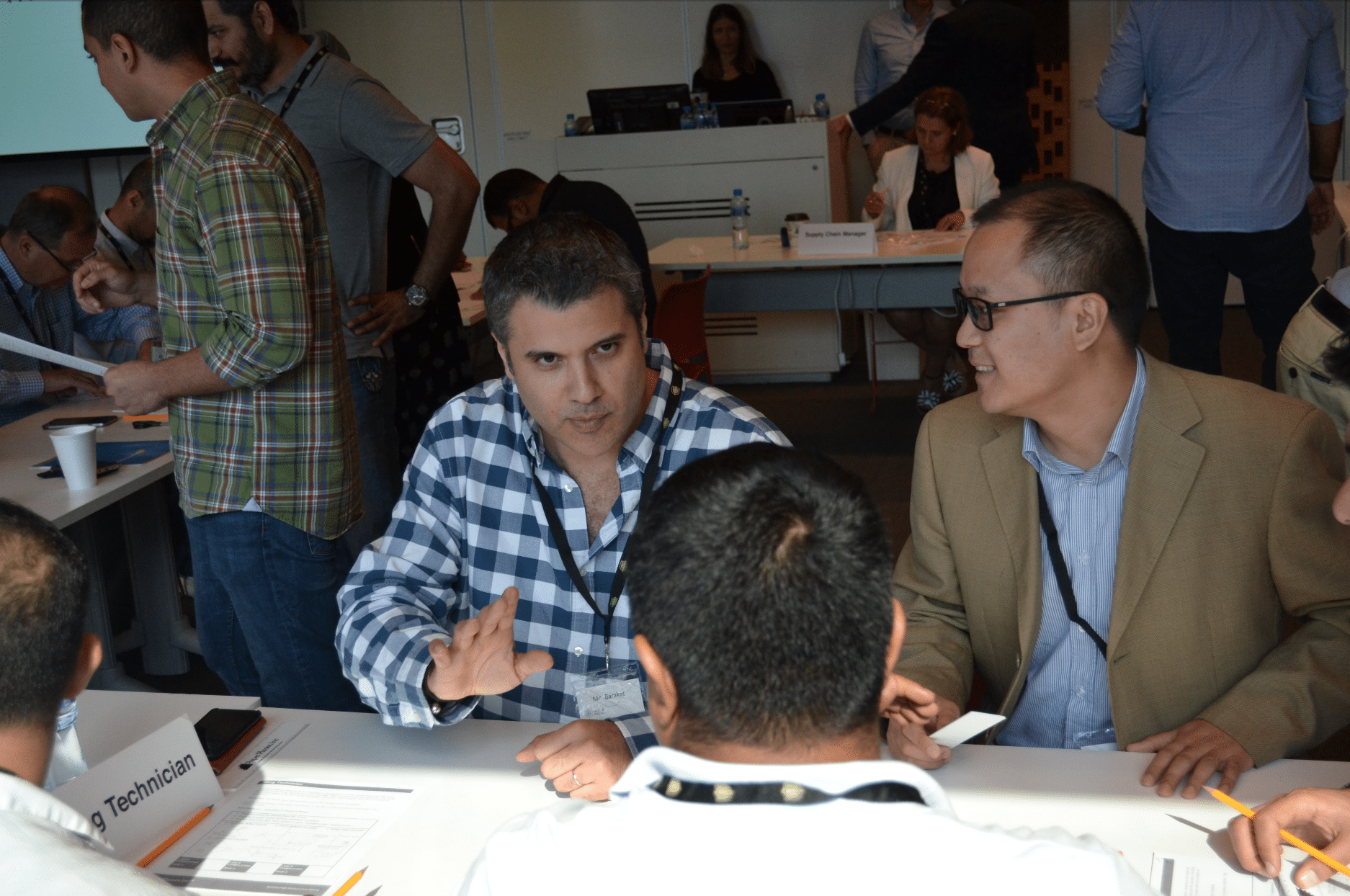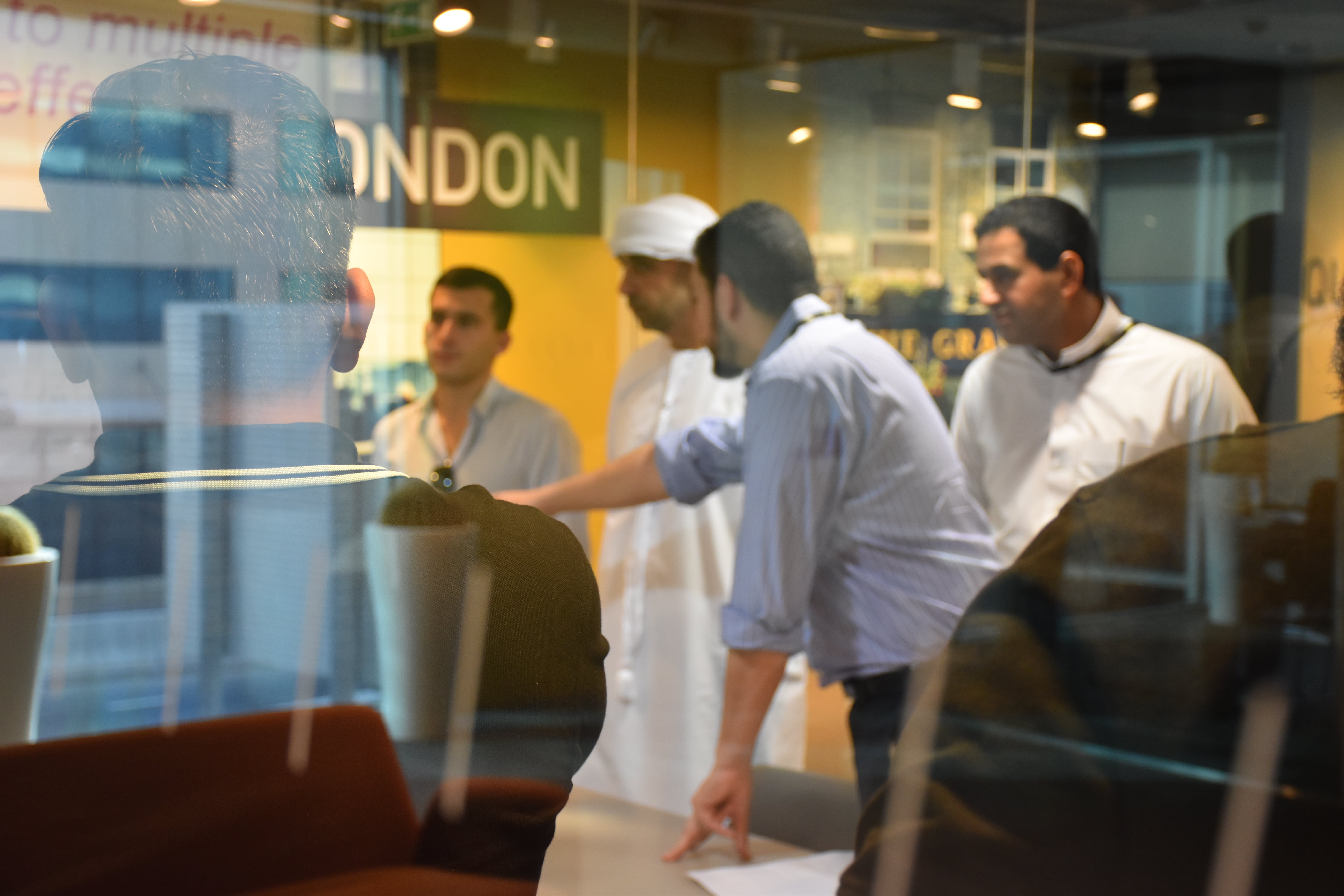Written by Stewart McNair, Executive Director and Principal Consultant at Global Scope HR and Executive MBA student at Hult International Business School.
Working in groups changes our brain and makes us better. Not so sure about that? Read on…
Most of our classes at Hult have assignments requiring group work, sometimes for credit, sometimes not. As the groups change each time, we often find ourselves working with different people, from many different countries, as we progress through the program. Given the inevitable time limits, this requires us to form new working relationships very quickly. To be successful, in addition to our problem-solving skills, we must develop our interpersonal, leadership, cross-cultural and follower skills. We must be able to work and play well with others!


That all seems obvious, but there is something else going on that is less so. To explain, I will refer to neuroscience. Neuroscience is about understanding the brain in the context of behaviour and cognition.
Our brains have default mechanisms. At the most basic level, these are about self-preservation and survival. Our brains are also hard-wired for us to be social animals, and that serves those survival purposes as well as we are stronger as members of a group, or society, than as individuals. Unfortunately, in our global context, our hard-wiring assumes that anyone outside of our own group is a threat to our survival. Evolutionarily, we are wired for bias. If you observe the workings of someone’s brain under functional Magnetic Resonance Imaging (fMRI) when you show them a picture of someone who they don’t know, but who is visibly different, their brain will display a threat reaction. If you show someone they know, or someone who appears to be similar to them, there is no threat. But here’s the good news, even our hard-wiring can change with our experiences, and the utilization of our pre-frontal cortex, the part of our brain that makes us really human.
In some fascinating research by Van Bavel, Packer and Cunningham (2008), people were assigned to groups entirely randomly and then viewed pictures of both their own group members (in-group) and those in other groups (out-group). All the while their brains were being observed by an fMRI scan.
While viewing pictures of members of the assigned out-groupers (even though entirely randomly assigned) their brains demonstrated the neural activity of “threat.” Even more important, when shown pictures of their randomly assigned in-groupers, even though they had never met them, they displayed no threat reaction, even if that person was visibly different than them, i.e. they would have previously displayed a threat reaction to them. In short, being assigned to the same group, even randomly, very rapidly overcame the biases of our hard-wiring! Being members of the new group together had changed their brains.


So, back to Hult, and I’m sure you can guess where I’m going with this… As the program ensure we undertake frequent group work, we get to know each other better. Sometimes the time-pressure leads to tension or friction, but almost inevitably we get to learn how each person can contribute to our collective success. But, even beyond that, we change our brains and our relationship to those other group members. We become in-groupers to each other, and that carries over even after that course is over. We will never consider our former teammates in the same way as we did before we worked with them. And the more we do this accommodation of new group members, the better we become at it.
The implications for the workplace are obvious. Ensuring that employees get to work together in different ways, even planning for it, is a recipe to overcome negative biases and to reap the benefits of diverse perspectives. Those different perspectives make us stronger as individuals and a group, and lead to better outcomes for all of us.
Make the most of what your career has to offer with a Masters in International Business from Hult. To learn more, take a look at our blog Skills & networks: How my MBA made me an entrepreneur, or give your employability a huge boost with an MBA in international business. Download a brochure or get in touch today to find out how Hult can help you to explore everything about the business world, the future, and yourself.

